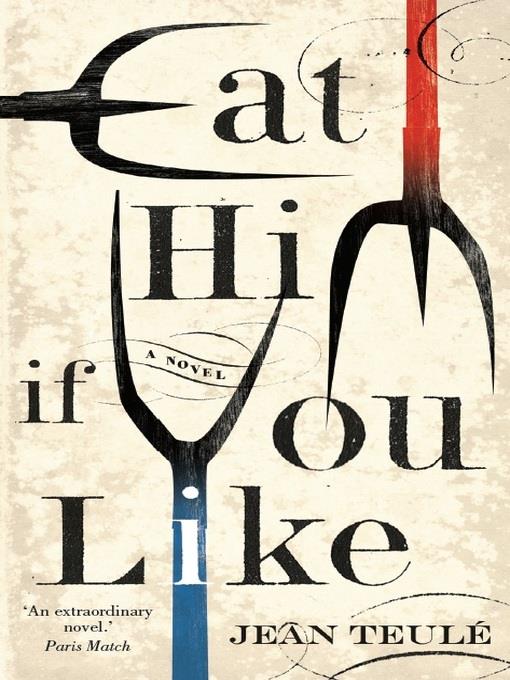
Eat Him If You Like
- اطلاعات
- نقد و بررسی
- دیدگاه کاربران
نقد و بررسی

August 25, 2014
A true incident from the Franco-Prussian war inspired this unnerving little tale of unthinking mob violence from Teulé (The Suicide Shop). One hot summer day in 1870, Alain de Monéys, the new deputy mayor of Beaussac, sets out on horseback for the nearby Saint-Roch fair. En route, he sees friends and neighbors, including farmers, artisans, a ragman, and the schoolmaster’s wife, with whom he exchanges pleasant words. Alain happens upon his outspoken cousin, Camille de Maillard, who’s engaged in a heated argument about the war. When Alain tries to defend Camille, his words are misunderstood. Neither civil nor religious powers are willing or able to defend Alain after he’s subjected to punches, stabs, lashes, and endless humiliations by the same people he so recently greeted. Teulé’s vivid account of ordinary folk inexplicably transformed into monsters resonates long after reading.

September 15, 2014
Teule's (The Hurlyburly's Husband, 2014, etc.) allegorical rendering of the true story of Frenchman Alain de Moneys' last day in 1870 is a cautionary tale of scapegoating and anger run amok. De Moneys, a respected 29-year-old just elected to deputy mayor, has refused to buy his way out of service in Napoleon III's army as is the custom for his social class. Instead, he plans to leave home and join the fight against the Prussians after visiting the neighboring town's fair. But his day trip goes wrong when he's accused of supporting the enemy, and he never makes it to the battlefield. Soon after reaching Hautefaye, de Moneys is set upon by a mob of farmers, businessmen and even those he chatted pleasantly with as he rode into the usually quiet village. The author's fictional version of this historical event makes de Moneys into a martyr, with the narrative evoking parallels to Jesus' final days: He receives a warm reception as he arrives on horseback, followed later by repeated false denials of knowing him by associates including the tailor whose name is sewn into his suit, and, after his life is already in danger, an authority figure washes his hands of the growing riot. Although characters are not developed sufficiently so that we can understand their relationships-the romantic pull between de Moneys and a young village woman, for example-their actions are vivid enough for us to comprehend the human cost of efforts to save de Moneys and the regret that plagues his murderers. An engrossing book to be read in one big gulp; some hackneyed dialogue and caricatures make the brutality easier to stomach.
COPYRIGHT(2014) Kirkus Reviews, ALL RIGHTS RESERVED.




دیدگاه کاربران